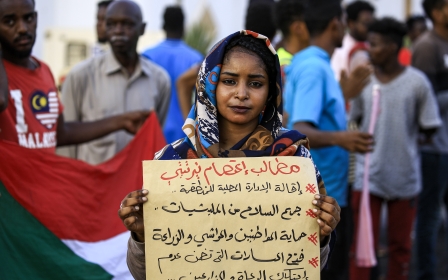More than 60 killed in fresh Darfur violence, UN reports

More than 60 people have been killed and another 60 wounded in fresh violence in the West Darfur region of Sudan, UN officials announced on Sunday.
Around 500 armed men attacked Masteri Town, north of Beida, in Darfur, on Saturday afternoon, said the statement from the UN Office for the Coordination of Humanitarian Affairs (OCHA).
The attackers targeted members of the local Masalit community, looting and burning houses and part of the local market, the statement added.
"This was one of the latest of a series of security incidents reported over the last week that left several villages and houses burned, markets and shops looted, and infrastructure damaged," said the statement, from the OCHA's Khartoum office. It did not cite the source of its information.
On Sunday, Sudan's Prime Minister Abdalla Hamdok announced that Khartoum would be sending security forces to Darfur in order to "protect citizens and the farming season".
Stay informed with MEE's newsletters
Sign up to get the latest alerts, insights and analysis, starting with Turkey Unpacked
On Friday, gunmen in the region had killed at least 20 civilians, including children, as they returned to their fields for the first time in years, the latest in a string of violent incidents.
"A joint security force will be deployed in the five states of the Darfur region to protect citizens during the farming season," Hamdok's office said in a statement, after he had met a delegation of women from the region. The force would include army and police forces, it said.
The impoverished western region has seen years of conflict since an ethnic minority uprising in 2003 prompted the government to launch a scorched-earth campaign that left 300,000 people dead and displaced 2.5 million, according to the UN.
But violence in Darfur had eased since former president Omar al-Bashir's ouster by the army amid mass protests against his rule last year, with a preliminary peace deal signed in January between the government and a coalition of nine rebel groups, including factions from the region.
The attack on Friday, which left 20 people dead and at least 20 wounded, took place in Aboudos, some 90km south of Nyala, the capital of South Darfur province, tribal chief Ibrahim Ahmad told AFP by telephone.
The victims were mostly displaced farmers, who had returned to their fields in time for the July-November planting season under a government-sponsored deal struck between the original landowners and those who took over their fields during the long-running war in Darfur.
In late June and early July, hundreds of protesters camped for days outside a government building in the central Darfur town of Nertiti to demand that the government tighten security after multiple killings and looting incidents on farmland and properties.
State of emergency
The conflict in Darfur began in 2003 when mainly non-Arab African tribes, complaining of marginalisation, rose up against the government of Bashir. Government forces and Arab militia, including the feared Janjaweed, a government-linked force, moved to repress the revolt and were later accused of widespread atrocities.
There had been no serious fighting for years, but the conflict remains unresolved as Arab militia are still present and have control over land they seized.
The transitional civilian Khartoum government has vowed to end the conflict and is holding talks with some of the rebel groups that had fought against Bashir's government in Darfur and elsewhere in the country.
Last week, Sudan declared a state of emergency in Darfur after violence broke out in the towns of Kutum and Fatabarno.
Bashir is wanted by the Hague-based International Criminal Court over charges of genocide and crimes against humanity in Darfur. The deposed president is currently on trial in Khartoum over the 1989 military coup which propelled him to power. If found guilty, he faces the death penalty.
Middle East Eye delivers independent and unrivalled coverage and analysis of the Middle East, North Africa and beyond. To learn more about republishing this content and the associated fees, please fill out this form. More about MEE can be found here.





